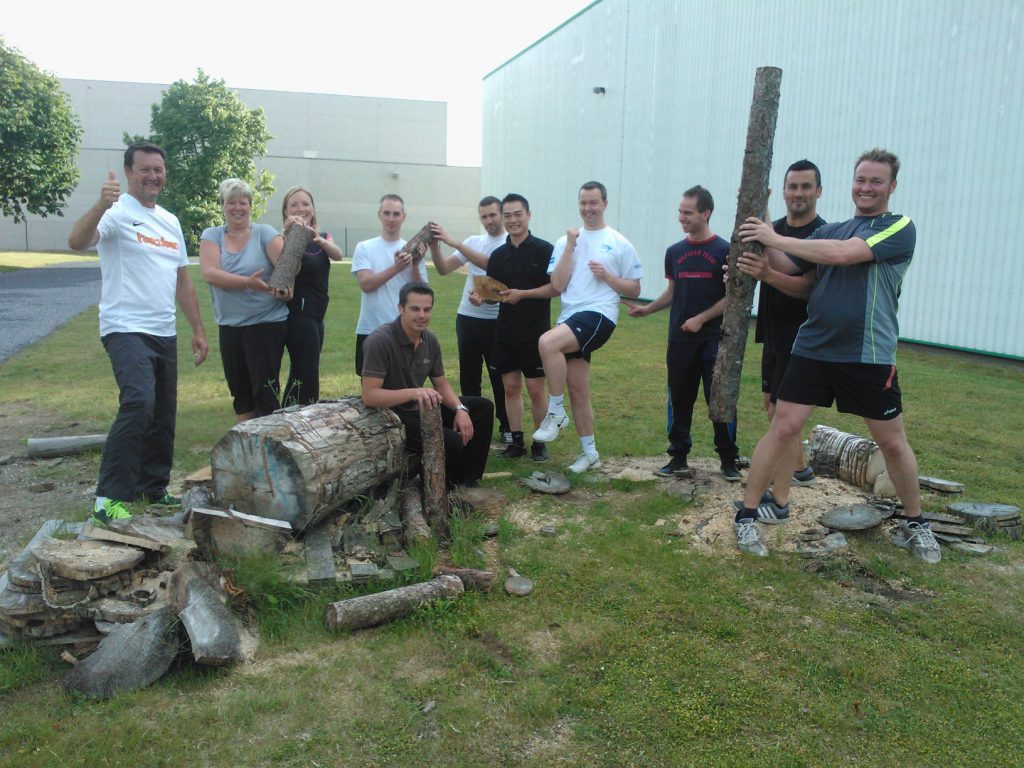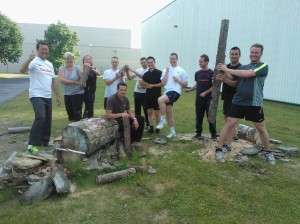Great teams control their Egos! A lot of our Academy values and programs come from the highly competitive sports world. Haven’t we been spoiled this year to watch a lot of great team sport competitions (Soccer World Cup, Commonwealth Games, Tour de France,….)
As I watched the cycling teams fighting the French mountains, I couldn’t help being amazed and totally inspired. Talk about team work. These guys were a well-oiled, highly efficient team with a plan… a real force to be reckoned with. Individuals lay themselves on the line, give everything they have and sacrifice their own aspirations and interests for the good of the team. But why? Cycling isn’t known as a team sport, is it ?
In cycling, only one guy stands on the podium…there is only one official winner that gets the glory, so why do they do it ?
I was reminded of Harry Truman’s quote: “It’s amazing what you can accomplish when you do not care who gets the credit”…. So it seems. This all sounds very good in theory, but how do you get people to actually buy into that ideal in practice?
This got me thinking about the correlation between cycling as a team sport and workplace team effectiveness.
What lessons can we take from cycling teams to help us be more effective in our own corporate teams?
Clear vision
At first, you need a vision, a purpose if you will. That vision needs to be crystal clear. Team members need to understand how that vision and purpose translates into individual roles and responsibilities. If you are to achieve your team goals, every member of the team needs to be aligned with that purpose. This is really step one, but it is a often underestimated in his value and accuracy.
Strong and natural leadership
You then need to build a team to achieve that purpose and that starts with a strong, clear leader who can garner the support of others. That leader cannot drive a team to success on their own, they need help – competent individuals with key strengths and capabilities that support the team purpose, without losing their energy. When you combine these strengths/talents into a team, they become a formidable unit that can achieve absolutely anything. Therefore it is really key to know what talents your team has and also where they will lose their energy if they perform in a low talent activity for them.
Identify strengths and weaknesses
Individual performance needs to be refined. The team needs to work together/train together to identify individual strengths, talents and weaknesses and develop a strategy to capitalise on these strengths. Even strengths need to be tweaked and refined, identifying key ‘touch points’ and adding 1% to generate improvement. It is the culmination of these 1% improvements right across the team that puts us ahead of the competition.
Team flexibility
There needs to be flexibility within the team to adapt and change to the environment as required. Take this year’s Tour. Team Sky’s plan A was to work towards a Chris Froome victory; Brailsford (team manager) even said that there was no real plan B. When Froome crashed out in the early stages, the team had to change tactic and ride to support Richie Porte….plan B? There is some debate as to how successful (or not) that tactic was, but the point is that the team cannot be too rigid. Things change rapidly within organisations and we need to be in a position to react very quickly.
Make sacrifices
There is no room for egos in a highly effective team. There is a job to be done and, in order to achieve this, the team needs to be cohesive. Sacrifices need to be made for the greater good and when individuals abandon the plan in pursuit of their own agenda, cracks start to appear. In order to motivate a team to make these sacrifices, it is important to acknowledge their contribution. Cyclist Mark Cavendish is an excellent example of this. Being the leader of the Omega Pharma-Quick Step team, he always credits his team highly when he wins a sprint. There is no ego, there is no me, it is a team effort!
See the bigger picture
And finally it’s important to recognize that every team has bad day,s but these do not necessarily have to be a big deal. There is a bigger picture, a greater purpose and you can probably catch up. Seeing this bigger picture also gets the stress level down in the group.
If, as a team, you ‘fall off your bike’: pick yourself up, dust yourself off, readjust your crash helmet and get back to the task in hand. After all, the Tour isn’t won in a day.

